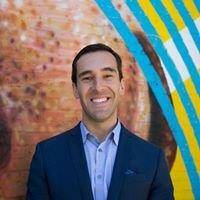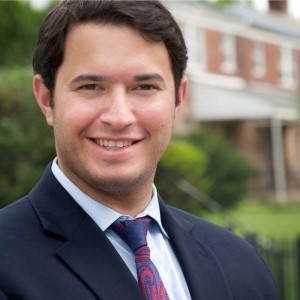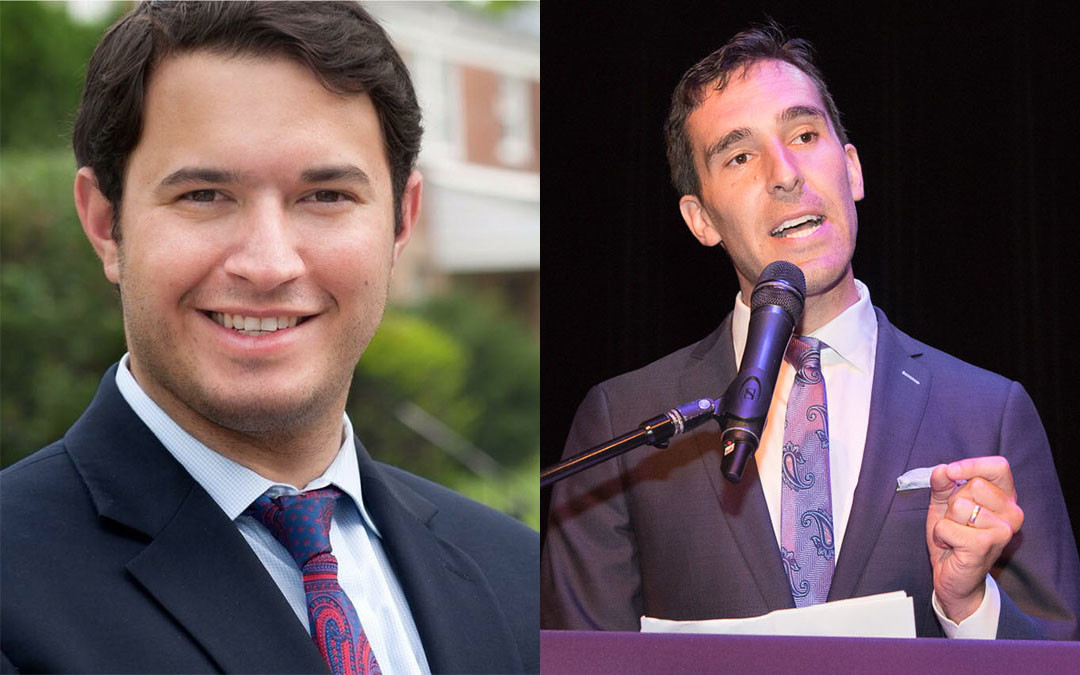They call it Charm City. But Baltimore’s violent crime rate is up 23 percent so far this year, as compared to 2016. Meanwhile, the city now has 110,000 fewer residents than in 1993.
What is being done to address these and other major issues confronting Baltimore? Jmore recently spoke to a pair of local Jewish politicians who have served in their positions for only six months, Baltimore City Councilmen Zeke Cohen (D-1st) and Isaac “Yitzy” Schleifer (D-5th)
Jmore: What have you learned in your first six months on the council?

Cohen: I’ve learned that people in Baltimore are extremely resilient and want a voice in how their city is governed. For example, providing $2.58 million for community schools and after-school funding, in addition to what Mayor [Catherine E.] Pugh had originally put out, as well as $1.5 million for safe streets. We were able to get this funding because 40 young people from across the city came to the City Council to provide powerful testimony about the importance of after-school programs and community programs. From fifth graders to students about to go to college, they were able to hold us accountable.
Another thing I’ve learned is that one of Baltimore’s biggest challenges is how disconnected some of our communities are from each other. I represent Southeast Baltimore, which has everything from wealth to poverty, including enormous immigrant populations. As a city, we remain deeply segregated, so it’s hard for people to understand what’s happening in other communities. We need to engage people to break down some of the barriers that keep people separate.

Schleifer: I’ve learned that the work is hard, the hours are long and the politics are complex. But at the end of the day, it is really fulfilling to be on the City Council, to make Baltimore a better place to live.
I’ve also learned that many people have unrealistic expectations of what you can do and the time frame in which things can be done. One example is with complex education issues. Here’s one situation: A family with a special needs child came to me after spending countless hours trying to get proper services from the school system for their child. The school system didn’t know how to handle this child with a rare disorder. Rather than the parents suing the school system and the school delaying and not really analyzing the situation, I was able to get the school to look at other students with this rare disorder, asking, “Why wouldn’t this child benefit from the same services?” So that’s what they ended up doing.
Another example is the Overlook Project, called Belvedere II by detractors. There are plans for an apartment building zoned for up to 200 units to be built on a 12-acre site in North Roland Park. The developer passed zoning requirements and every agency with flying colors. The only reason I ended up in this project is because community members asked me to get involved. I wanted to determine what’s best for the community, which was to reduce the size of the building. The developer has done that with a 25 percent decrease to 148 units. Also, of the 12 acres, he’s creating a six-acre buffer with trees.
What has surprised you?
Cohen: I’ve been surprised at how unified our council has been. I knew that young leaders such as Yitzy and several other new council members would bring energy after a tremendous amount of turnover. But I’ve been surprised at how cohesive and unified our council has been. There is no generation tension. For example, during budget season, all 15 out of 15 council members supported cuts to the mayor’s budget in order to fund youth programming.
Schleifer: There’s the good and the bad. For example, I thought that people who supported my opponent would come around. Some have, others have not. City Council members are really working as a team. You hear a lot of rhetoric about everyone looking out for themselves. In previous years, we’ve had individual council members fighting over what’s best for their district, not for the whole city. Today, the reality is that the mayor, the council president, the City Council and the governor, we’re all working together to make Baltimore a better place.
What are you and other council members doing about Baltimore’s violent crime rate?
Cohen: The violence is completely unacceptable. I chair the Education Committee, so I think of violence as a symptom of concentrated poverty. Restoring funding for youth programs is a form of public safety by keeping young people away from crime. We also restored $1.5 million for the Safe Streets program, which is a remarkable anti-violence program that has shown a 27 percent reduction in shootings in certain violent neighborhoods. We need a comprehensive crime reduction strategy across many agencies, not just our police department, to determine what we can do collectively to reduce violence. Another initiative I’ve been working on to reduce violence is a program of summer jobs that provide on-ramps for young people to careers paths. The more we can do to get our young people employed, the more we reduce violence.
Schleifer: First and foremost, we’re working closely with police and the law enforcement community. For example, we had four carjackings in one day in my district. Community members contacted me and as soon as I reached the police, they delivered the manpower needed that led to arrests that day.
We’re using solutions that have worked in other cities, including implementing a youth curfew. We’ve proposed legislation that calls for stronger gun reduction strategies, we’re seeking an additional 50 police cadets.
We’re also using a targeted approach to areas of the city with the most violence. A public safety committee maps out where most of the gun crimes, shootings and homicides take place, and we put teams of police officers in those areas to reduce gun violence. The reality is that most violent crimes take place in those specific high crime zones.
The bottom line is we’re short on patrol units, on officers on the street. One way to get more police office in patrol units is by asking the governor to let State Police move accidents on I-83, freeing up more officers for patrols in high crime areas.
Do your Jewish values get expressed in City Council discussions and actions?
Cohen: Absolutely. My framework is through the lens of tikkun olam, the Jewish value of social justice. I apply that to repairing and healing communities that face discrimination, including our immigrant communities that are under an enormous amount of duress given the actions from the Trump administration. I’ve introduced legislation to make Baltimore a welcoming city. I’ve supported a legal defense fund that provides legal defense and education for legal immigrants.
Many of the families in my district from other countries have come here to escape violence, much as my grandmother did to escape Hitler’s Holocaust. They have come here to make a new life, just as my grandmother did. As a Jew, I feel an obligation to stand up for refugees. That’s how my Judaism shows up. Jewish people understand about discrimination and refugees.
Schleifer: Having Jewish values does not get turned on and off. I always think about my relationship with God and how I serve Him. As I work with my council colleagues for the benefit of the broader public, how I act and how I speak, even if we don’t agree, as part of Jewish values. I’m honored to serve as a “Light unto the Nations.” I strive to make decisions based on how a bill will help people, not on partisanship or politics but rather on Jewish values.
For example, on matters that use tax dollars, I’m always exploring ways to lower property taxes, making sure that government is not wasting people’s money but that people get to keep more of their hard-earned income. As part of my Jewish values, I must be compassionate about people who have needs, but we also we need to provide job training and jobs so people can earn a living with self-respect.
What are you doing to attract more residents to the city?
Cohen: In some ways, Baltimore is like other Rust Belt cities — when jobs and manufacturing moved out of our city, so did people. The challenge is to reverse that trend, to create a city that people want to move to. In the 1st District, we’ve invested strategically, for example, in Patterson Park. It’s great. We’ve got the Creative Alliance and a thriving art community, several tech incubators, and we’re starting to see jobs come back. Another thing that’s important for jobs is the Port of Baltimore, which is seeing expansion and increases.
We need to work to retain families, and that’s about schools, about safety, about insuring that when people to move to Baltimore they have high quality of life. So I will continue to listen, continue to be present and continue to advocate for my constituents.
Schleifer: Overall, we’re focused on improving life in Baltimore, lowering crime, getting rid of abandoned properties, improving schools, creating jobs, and providing better transportation. I did not support increasing the minimum wage because that will drive jobs out of Baltimore.
Crime is definitely the number one priority. My focus is not just on specific issues but also restoring pride in Baltimore — for example, the light show — and working in other ways to restore our reputation.
Peter Arnold is an Olney, Md.-based freelance writer.





